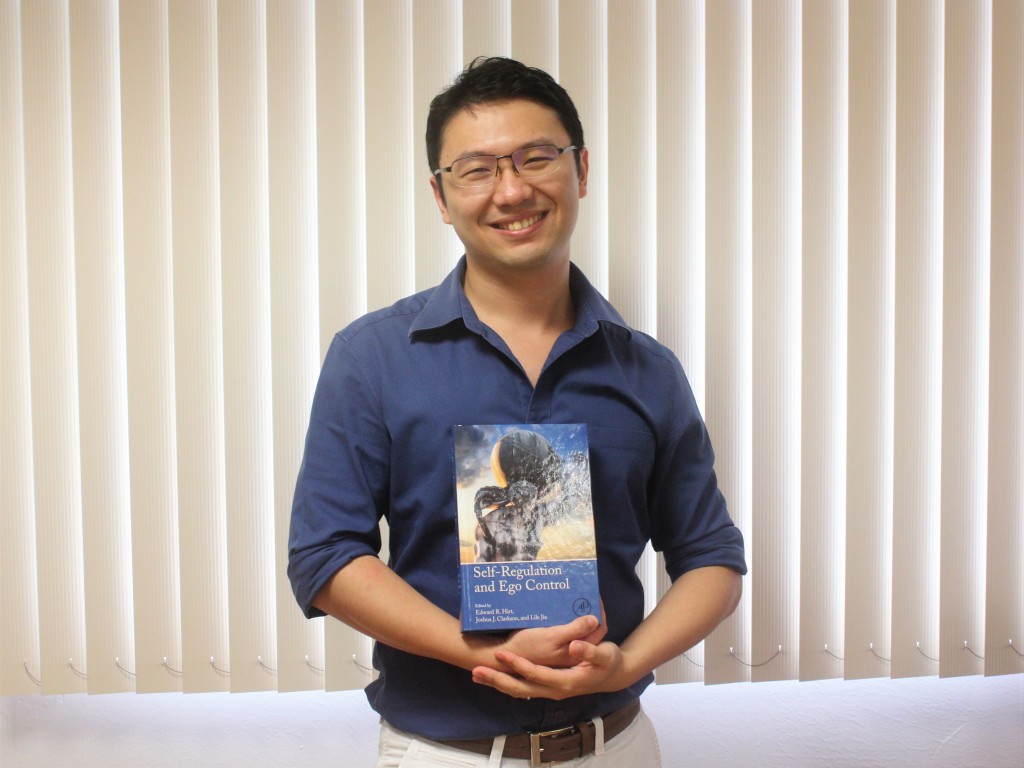Research by Dr. Jia Lile sheds light on the psychological processes underlying depletion with a focus on the comparator mechanism in self-regulatory monitoring.
Self-control underlies many of our daily activities, including persisting on difficult tasks and striving to attain our goals. Yet, self-control exertion depletes our limited pool of inner resources, leaving us prone to subsequent self-regulation failure.
Current theories posit that this occurs because depletion shifts our attention away from self-regulatory monitoring.
Specifically, recent research by Dr. Jia Lile from the Department of Psychology in NUS and Dr. Edward Hirt from Indiana University Bloomington has found that prior exertion of self-control, or ego depletion, suspends our ability to monitor (or compare) discrepancies between our self and goal standards — an ability that is thought to require self-focused attention.
Dr. Jia commented that while the ego depletion model of limited and depletable self-regulatory resources has dominated scholarly inquiry in the past two decades or so, recent calls have been made to examine the underlying process of ego depletion. He said,
By examining the goal pursuit mechanism that ego depletion affects, our paper offers a small piece of the puzzle.
In their study, higher self-consciousness indicating an effective comparator mechanism led to better self-regulation when individuals were not depleted, i.e., when individuals had not engaged in a strenuous mental activity.
Under depletion, however, the comparator mechanism was disabled and self-consciousness no longer predicted self-regulation. Instead, depleted individuals’ self-regulatory effort was guided by implicit goal pursuit. This suggests that depletion does not directly reduce task motivation, but specifically shifts attention away from self-focused monitoring.
A novel possibility emerged from this view: While depletion has often been associated with poorer self-regulatory effort, this may not always be the case.
Interestingly, depletion was found to increase task persistence for people with high self-consciousness who expected to be very bad at the task (low goal expectancy). Because an effective comparator mechanism encourages reduced effort when we have low expectations of attaining our goal, the suspension of such monitoring after depletion increases effort instead. Intriguingly, then, depleted people perform better than non-depleted people in such situations.
“Counterintuitive as it may be,” Dr. Jia noted, “it corroborates emerging literature showing that the classic ego depletion phenomenon is moderated by perception, beliefs, and expectancies.”
Indeed, this work deepens our understanding of the psychological mechanisms underlying depletion, while broadening our perspective on when and for whom depletion impacts self-regulation.
To capture the diverse views in the field of self-regulation and ego depletion, Dr. Jia has recently co-edited a book entitled “Self-Regulation and Ego Control” with Dr. Hirt and Dr. Joshua J. Clarkson, to which 20 teams of scholars have contributed.
References
Hirt, E. R., Clarkson, J. J., & Jia, L. (2016). Self-regulation and ego control. San Diego, CA: Elsevier.
Jia, L., & Hirt, E. R. (2016). Depletion suspends the comparator mechanism in monitoring: The role of chronic self-consciousness in sequential self-regulation. Journal of Personality and Social Psychology, 111, 284-300. http://dx.doi.org/10.1037/pspp0000108


